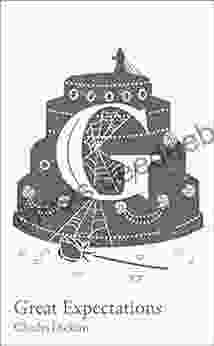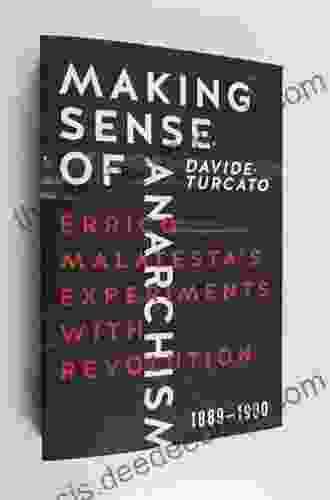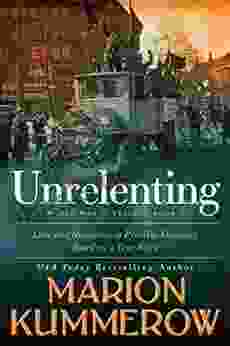Making Sense of Anarchism: A Comprehensive Guide to a Misunderstood Ideology

4.9 out of 5
| Language | : | English |
| File size | : | 2584 KB |
| Text-to-Speech | : | Enabled |
| Screen Reader | : | Supported |
| Enhanced typesetting | : | Enabled |
| Word Wise | : | Enabled |
| Print length | : | 288 pages |
| X-Ray for textbooks | : | Enabled |
Anarchism, often erroneously perceived as synonymous with chaos, is in reality a diverse and intricate ideology with a rich history. To dispel common misconceptions, this comprehensive guide will delve into the various forms of anarchism, elucidate its fundamental principles, trace its historical roots, and illuminate its continuing relevance in contemporary society.
Core Principles of Anarchism
At the heart of anarchism lies a fundamental rejection of all forms of hierarchical authority, whether political, economic, or social. Anarchists envision a society based on voluntary cooperation and mutual aid, where individuals are self-governing and decisions are made through consensus or bottom-up processes.
Central to anarchism is the belief in individual autonomy and liberty. Anarchists assert that all persons have inherent worth and dignity and should be free to make choices about their own lives, without external coercion or control.
Types of Anarchism
Anarchism encompasses a wide range of perspectives, each with its unique approach to achieving a society free from domination and hierarchy. Some of the most prominent types of anarchism include:
- Individualist Anarchism: Emphasizes personal freedom and self-reliance. Individualist anarchists believe that individuals should be responsible for their own well-being and that external authorities should not impose constraints upon them.
- Social Anarchism: Stresses the importance of cooperation and solidarity. Social anarchists argue that individuals are interconnected and that a just society requires collective action to meet the needs of all members.
- Communist Anarchism: Proposes the abolition of private property and the distribution of resources based on need. Communist anarchists believe that economic equality is essential for genuine freedom.
- Anarchosyndicalism: Combines anarchist principles with labor unionism. Anarchosyndicalists advocate for worker self-management and the use of direct action, such as strikes and boycotts, to achieve social and economic change.
Historical Origins of Anarchism
The roots of anarchism can be traced back to ancient philosophers such as Lao Tzu and Diogenes. However, it was in the 19th century that anarchism emerged as a distinct political ideology. Key figures in the anarchist movement included:
- William Godwin: English philosopher and novelist who argued for the abolition of government and the creation of a society based on reason and individual liberty.
- Pierre-Joseph Proudhon: French philosopher and economist who coined the term "anarchy" and advocated for mutualism, a non-capitalist economic system based on voluntary exchange.
- Mikhail Bakunin: Russian revolutionary who emphasized the importance of mass action and direct struggle.
- Emma Goldman: American anarchist and feminist who tirelessly campaigned for social justice and individual freedom.
Anarchism in the Contemporary World
Anarchism continues to be a significant force in contemporary political and social movements. Anarchist principles have influenced diverse groups, from environmental activists to LGBTQ+ rights advocates.
The emergence of the internet and social media has created new opportunities for anarchist organizing and communication. Online platforms have enabled anarchists to connect globally and share ideas, strategies, and resources.
Anarchism is a multifaceted and dynamic ideology that offers a compelling vision of a society free from oppression and exploitation. By rejecting hierarchical structures and embracing individual autonomy, anarchists seek to create a world where all people can live in peace, dignity, and freedom.
While anarchism has often been marginalized and misunderstood, its core principles continue to resonate with individuals and groups who strive for a just and equitable world.
4.9 out of 5
| Language | : | English |
| File size | : | 2584 KB |
| Text-to-Speech | : | Enabled |
| Screen Reader | : | Supported |
| Enhanced typesetting | : | Enabled |
| Word Wise | : | Enabled |
| Print length | : | 288 pages |
| X-Ray for textbooks | : | Enabled |
Do you want to contribute by writing guest posts on this blog?
Please contact us and send us a resume of previous articles that you have written.
 Book
Book Page
Page Text
Text Library
Library Newspaper
Newspaper Paragraph
Paragraph Sentence
Sentence Bibliography
Bibliography Foreword
Foreword Preface
Preface Annotation
Annotation Manuscript
Manuscript Scroll
Scroll Codex
Codex Tome
Tome Library card
Library card Narrative
Narrative Biography
Biography Autobiography
Autobiography Reference
Reference Dictionary
Dictionary Thesaurus
Thesaurus Character
Character Resolution
Resolution Card Catalog
Card Catalog Borrowing
Borrowing Study
Study Lending
Lending Reserve
Reserve Academic
Academic Journals
Journals Reading Room
Reading Room Rare Books
Rare Books Literacy
Literacy Thesis
Thesis Dissertation
Dissertation Reading List
Reading List Book Club
Book Club Theory
Theory Textbooks
Textbooks Audrey Muller
Audrey Muller Adam Beck
Adam Beck Evenson Dufour
Evenson Dufour Madeline Hunter
Madeline Hunter A C Arthur
A C Arthur Judith L Swartz
Judith L Swartz Jeremiah Brown
Jeremiah Brown 5th Edition Kindle Edition
5th Edition Kindle Edition Elizabeth Angus
Elizabeth Angus Donald Sheneberger
Donald Sheneberger 9th Edition Kindle Edition
9th Edition Kindle Edition Annette Marie
Annette Marie Kieran Fanning
Kieran Fanning Lene Nielsen
Lene Nielsen Waziyatawin
Waziyatawin Corlet Dawn
Corlet Dawn R Shane Tubbs
R Shane Tubbs E Paul Durrenberger
E Paul Durrenberger James Mascia
James Mascia Ferniko
Ferniko
Light bulbAdvertise smarter! Our strategic ad space ensures maximum exposure. Reserve your spot today!

 Brent FosterMatter of Moral Justice: A Comprehensive Exploration of Ethical Principles in...
Brent FosterMatter of Moral Justice: A Comprehensive Exploration of Ethical Principles in... Liam WardFollow ·13.8k
Liam WardFollow ·13.8k Emmett MitchellFollow ·5.2k
Emmett MitchellFollow ·5.2k Chandler WardFollow ·18.3k
Chandler WardFollow ·18.3k Jaime MitchellFollow ·3k
Jaime MitchellFollow ·3k Jamie BellFollow ·8.1k
Jamie BellFollow ·8.1k Travis FosterFollow ·5.5k
Travis FosterFollow ·5.5k Dean ButlerFollow ·3.7k
Dean ButlerFollow ·3.7k Pete BlairFollow ·15.7k
Pete BlairFollow ·15.7k

 Russell Mitchell
Russell MitchellGCSE Set Text Student Edition: Collins Classroom Classics...
The GCSE Set Text Student Edition: Collins...

 Ralph Turner
Ralph TurnerSix Sigma Lean Green Belt Training for Beginners with...
What is Six...

 Travis Foster
Travis Foster10 Life-Changing Lessons I Learned When I Was Single
Being single can...

 Jermaine Powell
Jermaine PowellOne Great Insight Is Worth a Thousand Good Ideas
In the competitive and...
4.9 out of 5
| Language | : | English |
| File size | : | 2584 KB |
| Text-to-Speech | : | Enabled |
| Screen Reader | : | Supported |
| Enhanced typesetting | : | Enabled |
| Word Wise | : | Enabled |
| Print length | : | 288 pages |
| X-Ray for textbooks | : | Enabled |














